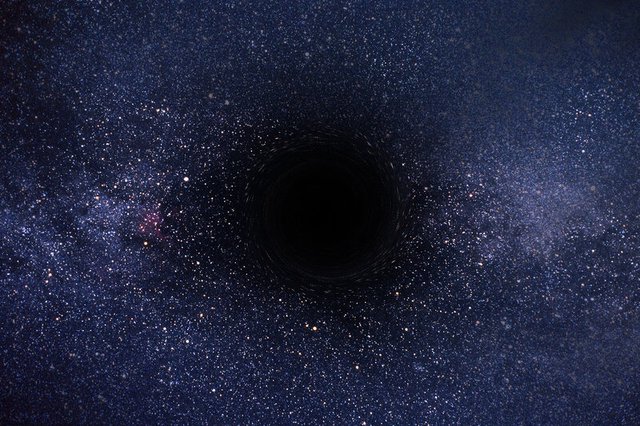
Astrophysics in a nutshell: Exploring the Universe
Oct. 24, 2025

Few fields capture human imagination as much as astrophysics, the science that helps us understand the origins, evolution, and future of the universe. From black holes to exoplanets, astrophysicists investigate the laws that govern space and time, answering some of the most profound questions in science.
If you’re fascinated by the cosmos and want to turn that curiosity into a career, the degree in Physics at Universidad Europea gives you the scientific foundations and analytical skills to explore the universe through research, data, and innovation.
What is astrophysics?
Astrophysics is a branch of physics that studies the physical properties and behaviour of celestial objects and phenomena. It combines principles of classical mechanics, electromagnetism, quantum physics, and relativity to explain how the universe works.
In essence, astrophysicists seek to answer questions like:
- How did the universe begin?
- What are stars made of?
- How do galaxies form and evolve?
- Could life exist beyond Earth?
The main areas of astrophysics
Astrophysics covers a vast range of specialisations; each focused on a different scale or phenomenon in the universe.
Stellar and Galactic Astrophysics
This area studies stars, galaxies, and their life cycles, from star formation to supernova explosions and black hole formation. Understanding these processes helps us grasp how elements essential for life are created and distributed across the cosmos.
Cosmology
Cosmology investigates the large-scale structure and origin of the universe. Scientists in this field study the Big Bang, dark matter, and dark energy, which make up most of the universe’s content but remain largely mysterious.
Planetary Science
This field focuses on planets, moons, and other bodies within and beyond our Solar System. It combines astronomy, geology, and atmospheric science to understand how planets form and whether they can sustain life.
High-Energy Astrophysics
Astrophysicists study extreme environments — such as neutron stars, quasars, and gamma-ray bursts — where energy levels and physical conditions challenge our understanding of physics.
Computational Astrophysics
Using supercomputers and simulations, scientists model the behaviour of galaxies, black holes, and even the evolution of the universe itself, allowing them to test theories that cannot be observed directly.
Modern tools and technologies in astrophysics
Astrophysics relies on advanced technologies that help researchers observe, measure, and simulate cosmic phenomena.
Some of the most important include:
- Space telescopes like the James Webb Space Telescope and Hubble, which provide high-resolution images of distant galaxies.
- Radio observatories, such as ALMA, which detect electromagnetic radiation invisible to the human eye.
- Spectroscopy, used to determine the chemical composition and temperature of stars.
- Particle detectors, which help study cosmic rays and the subatomic particles produced by stellar events.
These tools have revolutionised our understanding of space, enabling discoveries about the age, composition, and expansion of the universe.
Why astrophysics matters
Astrophysics is not just about exploring the cosmos for curiosity’s sake — it also has profound implications for technology, innovation, and our understanding of Earth.
The study of astrophysics has contributed to advances in:
- Computer modelling and data processing
- Satellite communication and navigation
- Medical imaging technologies (derived from space-based sensors)
- Energy and materials science, through the study of extreme physical conditions
By pushing the limits of what we know, astrophysics drives innovation across disciplines.
Career opportunities in astrophysics
Graduates in physics or astrophysics can work in a wide range of fields, including:
- Research and academia, conducting studies in observatories or universities.
- Aerospace and technology, developing instruments and spacecraft.
- Data science and analytics, such a big data architect, applying mathematical and computational skills to business or tech sectors.
- Science communication, helping make complex ideas accessible to the public.
The skills acquired in this field — analytical thinking, problem-solving, coding, and quantitative reasoning — are highly valued in many industries beyond science itself.
The future of astrophysics
Astrophysics is entering a golden era. The combination of AI, quantum computing, and international collaboration is accelerating discovery. Projects such as the Square Kilometre Array (SKA) and NASA’s Artemis programme aim to expand our understanding of the universe, from mapping the early cosmos to returning humans to the Moon.
Moreover, private space exploration is opening new opportunities for research, innovation, and industry partnerships, making this one of the most exciting times to study physics.
Conclusion: why study astrophysics?
Astrophysics combines scientific curiosity, technical precision, and philosophical wonder. It challenges us to look beyond our planet and explore the very fabric of the universe.
In summary:
- Astrophysics studies the physical laws governing celestial objects.
- It encompasses stellar evolution, cosmology, and planetary science.
- Modern tools like telescopes and simulations enable groundbreaking discoveries.
- The field inspires technological innovation and cross-disciplinary progress.
- Studying astrophysics opens diverse and impactful career paths.
If you want to uncover the secrets of the cosmos and contribute to future discoveries, explore the science degrees at Universidad Europea, where scientific knowledge meets exploration and discovery.